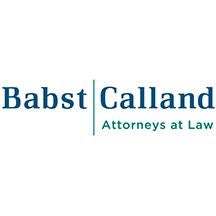The Fourth Circuit Court of Appeals released its decision in Corder, et al. v. Antero Resources Corp., No. 21-1715 (4th Cir. January 5, 2023) (https://www.ca4.uscourts.gov/opinions/211715.P.pdf), a dispute over royalties owed for the sale of gas and natural gas liquids (“NGLs”). In its opinion, the Fourth Circuit made several important rulings regarding the ongoing application of West Virginia’s seminal oil and gas royalty case, Estate of Tawney v. Columbia Natural Resources, LLC, 219 W. Va. 266, 633 S.E.2d 22 (2006) (“Tawney”).
The Court first explained that Tawney applies to all leases that calculate royalties “at the well,” including both “market value” and “proceeds” leases. The Court noted that the West Virginia Supreme Court of Appeals’ recent decision in SWN Prod. Co. v. Kellam, 875 S.E.2d 216 (W. Va. 2022) (“Kellam”) did not support the lessee’s argument that Tawney is solely restricted to proceeds leases. Corder at 16.
The Court further rejected the lessee’s argument that even where a lease is silent as to the deduction of post-production costs, Tawney does not apply to costs incurred after oil or gas becomes marketable but before the point of sale. The Court analyzed whether Tawney or any other West Virginia authority supported the argument that once gas reaches the point where it is first marketable, the presumption that the lessee bears all post-production costs no longer applies, and deductions can be taken for costs incurred between the point where it is first marketable and the point of sale. The Court concluded that although the Kellam court recently characterized the marketable product rule as narrower than the “point of sale,” when it stated that under the marketable product rule, “the lessee bears all post-production costs incurred until the product is first rendered marketable,” the Fourth Circuit was unable to ignore the express “point of sale” language in the syllabus points in Wellman, Tawney, and Kellam. The Court acknowledged that the existing West Virginia authorities do not specifically relate to NGLs and whether post-production costs may be deductible after a product first becomes first marketable but before the point of sale, but noted that Wellman and Tawney only use language about the point of sale and “[b]ecause the West Virginia Supreme Court has not adopted a contrary rule, we conclude that the Tawney requirements apply through the point of sale.”
Finally, and most importantly, the Court ruled that certain market enhancement provisions are sufficient to meet the requirements of Tawney, albeit the Court disagreed with both the lessors and the lessees in Corder regarding the meaning of the specific provisions in their leases. In Corder, some of the leases included a market enhancement clause that specified the producer must cover the costs to “transform the product into marketable form” but permitted deduction of the costs from royalties if they “result in enhancing the value of the marketable oil, gas or other products to receive a better price.” See Corder at 24 (emphasis in original). The lessors argued, and the lower court agreed, that the clause was ambiguous and did not satisfy Tawney’s specificity requirements. The Fourth Circuit disagreed, finding the leases were not ambiguous and satisfied Tawney, though they did not have the meaning lessee believed. The Court reasoned the market enhancement clause at issue specifically states it applies to marketable products and not unprocessed gas. Lessee argued that it was entitled to deduct post-production costs after unprocessed gas first becomes marketable, but the Court held the lease language unambiguously states it only applies to value achieved after a product becomes marketable and had Lessee “instead wished to make the marketability of ‘unprocessed gas’ the reference point, it should have said so.” See Corder at 26. The Court acknowledged that the parties’ dispute centered on NGLs, which the market enhancement clauses at issue did not expressly mention, but explained that even if NGLs are a form of “gas” rather than “other product,” the clause “is concerned when the particular gas product actually sold by the Lessee reaches a marketable form.” Corder at pg. 26 note 10 (emphasis added). Thus, the Court concluded that the determination of when and where the specific NGL products sold by the Lessee became marketable and whether the value was enhanced is a factual issue and remanded this limited question for further proceedings.
Also important, in what appears to be a confirmation of their decision in Young, the Fourth Circuit further rejected the Lessors’ argument that the market enhancement clause fails to meet Tawney’s “particularity” requirement and noted that Kellam did not establish a hard and fast rule for determining what language passes the Tawney test, confirming their reasoning that no particular degree of detail is needed to satisfy Tawney if the intent of the parties to allow deductions is clear. Corder at page 28.
Finally, the Court affirmed the District Court’s dismissal of the lessors’ fraud and punitive damage claims, concluding that the pleadings failed to satisfy the particularity requirements of Rule 9. The Court also noted that the District Court had dismissed the claims based on the Gist of the Action doctrine and, while that decision did not need to be reviewed based on the Rule 9 dismissal, the Court stated that application of the Gist the Action doctrine “seems well supported.” Corder at 34 note 12.






 />i
/>i
